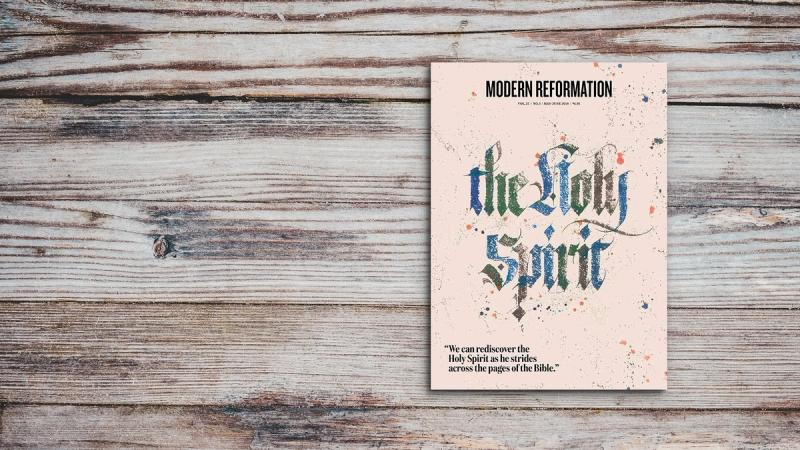It’s easy to yawn over yet another new book on Martin Luther, this past year’s five-hundredth anniversary of the Reformation notwithstanding. We’ve seen the movie, right?
We all know he fell terror-struck in a thunderstorm, confessed copious amounts of sins we would today label as personality foibles or age-related distress, gave the “Here I stand” speech, and married a nun. Well, of course he did. Who better to marry? It comes ironically, then, for me to answer the following questions thus:
“What’s in the top list of entertaining books you’ve read this year?”
This book on Luther.
“In the anniversary year of the Reformation, in which book have you read some of the most succinct and meaningful explanations of grace alone, Christ alone?”
This book on Luther.
“Do you think it’s possible to know much about a person who lived five hundred years ago?”
Well, no, except that there’s this book on Luther…
In his exceptional book Luther in Love, Doug Bond manages to write a delightful love story, clarify doctrine in simple yet profound words of truth from Luther himself (proving Luther’s brilliance in speaking to every age), reveal the heart of differences between Catholic and Protestant belief, and deliver us effectively into the smelly but picturesque streets, homes, and cloisters of sixteenth-century Germany.
From Katharina von Bora’s inglorious arrival in town to her surreptitious recordings of her husband’s stratospheric calling, we are taken by the hand to meet her and to love her as a godly woman and mentor for today. Martin was no paramour, but his unfolding adoration of this strong woman elevates the joys and dignity of marriage (if he would but have washed his sheets). I may have even laughed out loud a few times at their unorthodox romance, which emerges as robust and winsome and rivals the best of love stories. There lingers a sweetness about their relationship that heightens our definition of romantic love and increases our understanding of the strength a womanly helpmeet infuses into her man and the cherishing of his woman that comes through such a man.
Bond opens the tale when Martin is sixty-two and worn out from long years of travail for the truth but content in his home with his Katie. She pretends to be ciphering her household affairs with quill and ink, when in reality she is hoping to capture some of the man she knows on paper. Through her pen we travel back to his childhood, with Martin intensely processing the events unfolding before him. Then entering the cloister, wracking his body and mind to become penitent enough but never succeeding—and unwittingly gaining a name for himself—he struggles through the awakening light in his soul and the death throes of righteousness through his works. As a professor kindling fire under his students at one of Germany’s prestigious universities, Martin’s titanic clash emerges as Wittenberg is enflamed with his lectures and conversations with his students:
“Did the Christ, Herr Doctor, bear all of his father’s wrath against sin? . . . Because if he did…,” continued Pieter, his voice trailed off.
“If he did,” said Walter, “then why must we do penance?”
“Or go on pilgrimage?”
“Or buy indulgences?” said another.
“Or why does the priest sacrifice Christ again and again on the altar in the mass?” asked Pieter.
“Would not these doctrines of the Church,” said Walter, “if he is a God who is satisfied, would not Church doctrine be a reproach to God’s satisfied justice?”
Pieter stood to his feet, his face pale. “And if so, would not Church doctrine, thereby, be mutinously false?”
Then Tetzel came to town and the rest, as they say, is history. But we’ve never heard it told in the gripping way that Bond weaves the unfolding crisis rocking the city. Even Luther’s parents don’t understand. Of course, the best solution is to have him kidnapped.
Sometime later, as in all love stories, fish barrels arrive in town with women hidden inside of them—wives for the townsmen in need of one. Martin, however, didn’t have need of one—until the leftover fireball, Katharina, let him know that in this he was misguided.
A loving, rollicking household with children, company, good food, and stimulating conversation was the result of her sagacity, and a lifetime of fruitfulness spent loving people and sowing the truth became their legacy spanning five hundred years.
One notable strength of this book lies in its appeal to readers of all age groups. Bond’s strong tale-weaving, delightfully told from Katie’s point of view, meshes with theological truths so that anyone can enjoy it—a teacher or student, a theologically minded person, someone who loves a good yarn, or anyone who just wants a good read. Thinking expansively, it might even serve as a nonconfrontational marriage counseling tool. Don’t think you know everything about Martin Luther until you read this book.
Mary Lynn Spear is a freelance editor based in Seattle, Washington.







